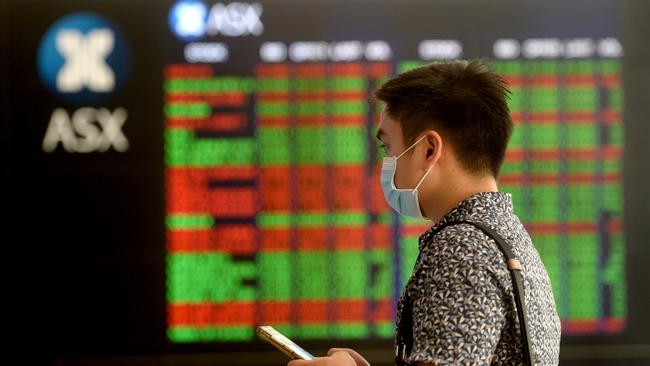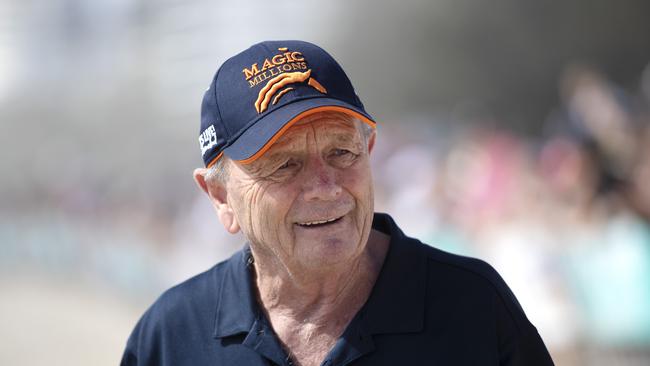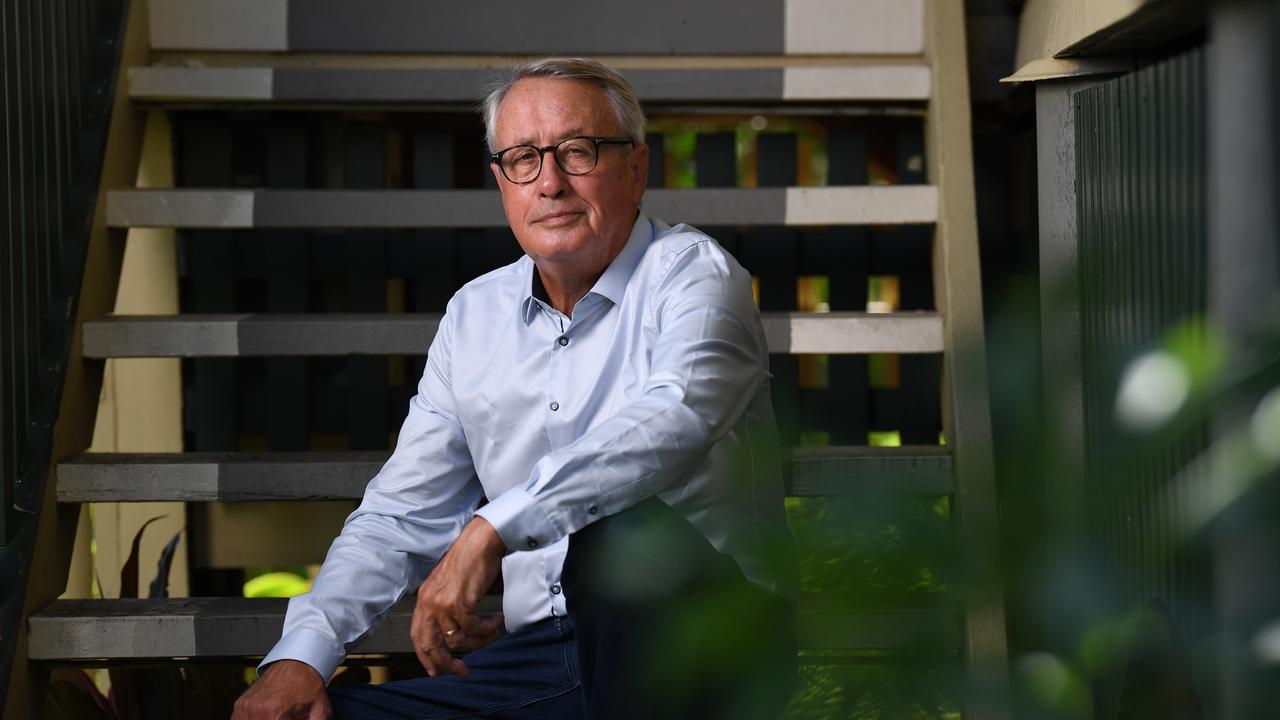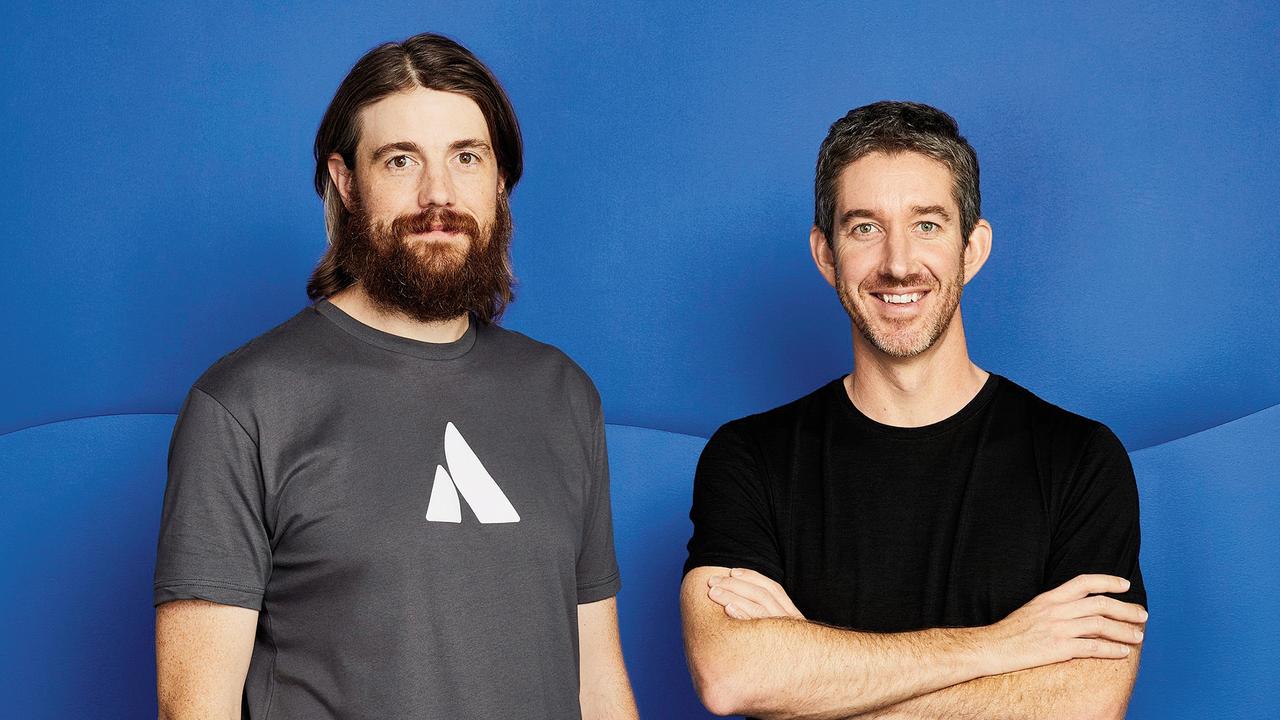Companies dig in on JobKeeper payments
Corporate Australia is digging in over repaying billions in JobKeeper money, despite booming profits and dividends.

Corporate Australia is digging in over repaying billions of dollars in the JobKeeper wage subsidy payments, despite booking booming profits and paying dividends to investors.
Many top executives have argued that the safety net, which also has the effect of lowering wage bills, was crucial as the pandemic hit, while shareholders are relying on dividends in the face of ultra-low interest rates.
An analysis of company reports by The Weekend Australian reveals that 56 of the largest listed companies received more than $1.5bn of taxpayer money in the first half of the financial year, with a majority paying dividends to the tune of at least $1.39bn.
These dividends were paid by 39 high-profile companies which between them received $531m in JobKeeper while booking $2.57bn in profits.
Some $996.7m was paid to loss-making companies that did not declare an interim dividend. Qantas, Crown Resorts and Event Hospitality and Entertainment accounted for more than 75 per cent of this figure.
But for companies posting a lift in profit and paying dividends, many have publicly knocked back suggestions of repaying the wage subsidy.
Car dealer group Eagers Automotive received $129.6m in JobKeeper, covering 14 per cent of its payroll, between March and September. Last week the company declared a full-year profit of $156.2m.
Eagers elected to pay out $65m in dividends to shareholders and has defied calls to repay some or all of the benefit.
“It’s important to note that we halved our financial year 2019 final dividend and elected not to pay a 2020 half year dividend, collectively representing at least $65m in dividend payments that were forgone by shareholders, many of whom rely on dividend income,” a spokesman for Eagers said.
“We stopped receiving JobKeeper in September, yet there have been several instances since where we have continued to pay our employees despite them not being able to work due to government shutdowns … demonstrating both our commitment to supporting our employees post JobKeeper as well as the fact government-imposed shutdowns remain a realistic threat for our business.”
Some companies that received JobKeeper payments said they would not repay them as they went to loss-making subsidiaries — even if the broader group remained profitable.
Refining major Ampol this week reported a $212m full-year profit and distributed $54.8m to shareholders — but still received $5.78m in JobKeeper.
Chief executive Matt Halliday told The Weekend Australian the benefit supported workers in its aviation business at its Lytton oil refinery, which lost $145m last year.
“That JobKeeper payment has helped support employment in refining where we’ve suffered a significant loss and also the aviation part of our business where we suffered obviously very significant demand destruction and earnings impacts as well,” Mr Halliday said.
“I think that’s what JobKeeper was intended to support and we certainly appreciate the support for employment across those impacted areas of our business.”
Health insurer NIB received $5m in JobKeeper money to prop up its travel insurance business, which chief executive Mark Fitzgibbon says was on track to lose up to $20m this year.
Mr Fitzgibbon said JobKeeper had prevented the company laying off about 130 people across its travel business and cross-subsidies from its core Australian resident health insurance division, which would have put pressure on premium costs.
“Businesses like Nick Scali thought they were going to do very badly and ended up doing well. Our travel business thought we were going to do badly and did worse,” Mr Fitzgibbon said.
“The business has continued to do very badly. It’s losing money. It lost $20m last financial year, and will lose $10m-$20m this financial year. We wouldn’t be able to keep those people employed if it weren’t for JobKeeper. And if we did keep it open, we would have to be drawing on the Australian resident health insurance business, their money essentially. That’s not something anybody wants.”
NIB will also pay an interim dividend of 10c a share, worth $45m, on April 6 after overall net profit jumped 16 per cent to $66.3m.
Furniture retailer Nick Scali is one of a string of retailers that has elected to return JobKeeper funds.
Retailer Harvey Norman, which more than doubled its half-year profit to $464m and paid out just under $250m in dividends, also received a small amount.
“Some of the other non-franchised businesses applied for, and were eligible to receive, $3.63m of wages support and assistance during [the first half of the 2021 fiscal year], all of which was passed on directly to their employees in order to retain the employees of those businesses,” the company said in its half-year report released on Friday.
Harvey Norman executive chairman Gerry Harvey is set to receive a dividend payout of about $84m, but rejected suggestions the wage subsidy had padded the payout.
“It’s up to every company. Every company can make its own decisions. From our point of view JobKeeper was $3.6m and it is not of any consequence of dividends,” Mr Harvey told The Weekend Australian.

Qantas this week reported $459m in JobKeeper payments for the last six months of 2020, in addition of $267m paid before July — becoming the single-largest recipient of money from the government program. Qantas this week posted a first-half loss of $1.47bn.
“But with so many of our people literally grounded — with no work to do — JobKeeper acted as a social safety net for individuals, more than as a wage subsidy for Qantas,” Qantas chief executive Alan Joyce said this week.
Opposition assistant treasury spokesman Andrew Leigh told The Weekend Australian that Harvey Norman should repay not just the JobKeeper received in the most recent half, but the all JobKeeper received by the company and its franchisees since March, amounting to about $22m.
“Josh Frydenberg was out there two years ago telling companies they should pay less dividends but they never told companies they should pay less bonuses out of JobKeeper,” Dr Leigh said.
There is no legislative mechanism by which the government can demand certain companies repay JobKeeper if they received the benefit legally.
Dr Leigh said the government needed to incentivise voluntary repayments by releasing internal data from the Australian Taxation Office.
“If it wasn’t for the transparency of public firms, we wouldn’t be seeing any repayments,” Dr Leigh said.
“Greater transparency is the only thing that’s causing companies to repay right now and we are getting none of that through the Australian government”.
So far some 16 ASX-listed companies have repaid $126m of the benefit. This includes Super Retail Group, Domino’s and Seek.
Logistics company Qube Holdings repaid the $16.8m in JobKeeper payments it received in the last half-year.
Managing director Maurice James said that, without the benefit, workers would have been retrenched, but repaying the benefit was ultimately the right thing to do.
“Had it not been for JobKeeper we estimate that up to 270 people could have been retrenched from Qube in the early part of last year as COVID-19 caused many operations to cease,” he said.
“Other companies may make different decisions, but on balance the Qube board felt returning JobKeeper was the right decision.
“The board decided that it was the right thing to do given the strong rebound in the economy and Qube’s performance in the latter part of last year.”
But Qube did not elect to repay the $13.5m in JobKeeper it received last financial year, despite finishing it profitable and paying a final dividend.
Cochlear was another that opted to repay the $23.1m in the December half. However, chief executive Dig Howitt said the scheme was important to support the economy.
“People forget what it was like in March and April, and the key issue was confidence — confidence in the outlook and confidence there would be revenue to keep people employed, which JobKeeper did,” Mr Howitt said.
“It was a very good program from the government.”





